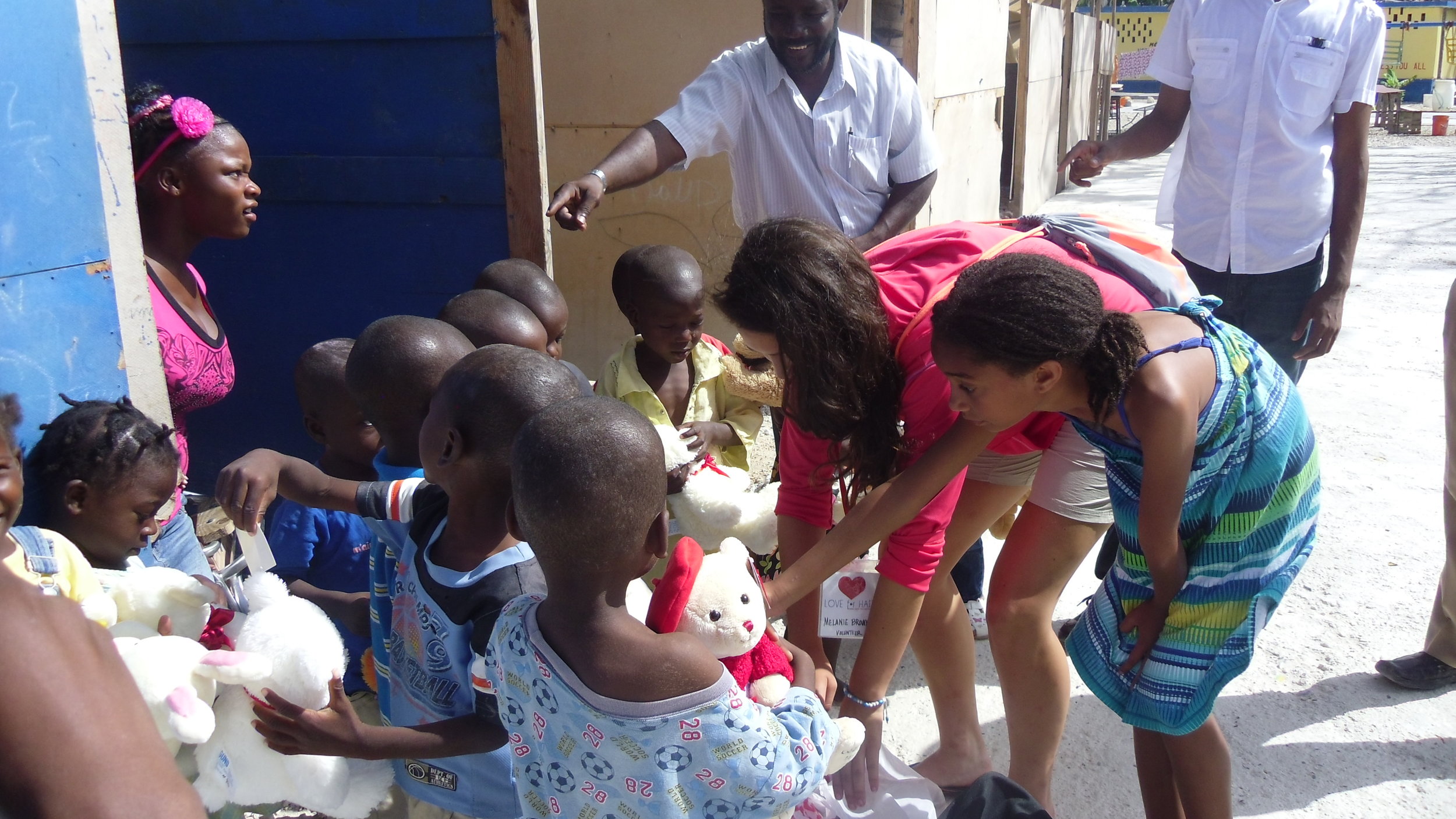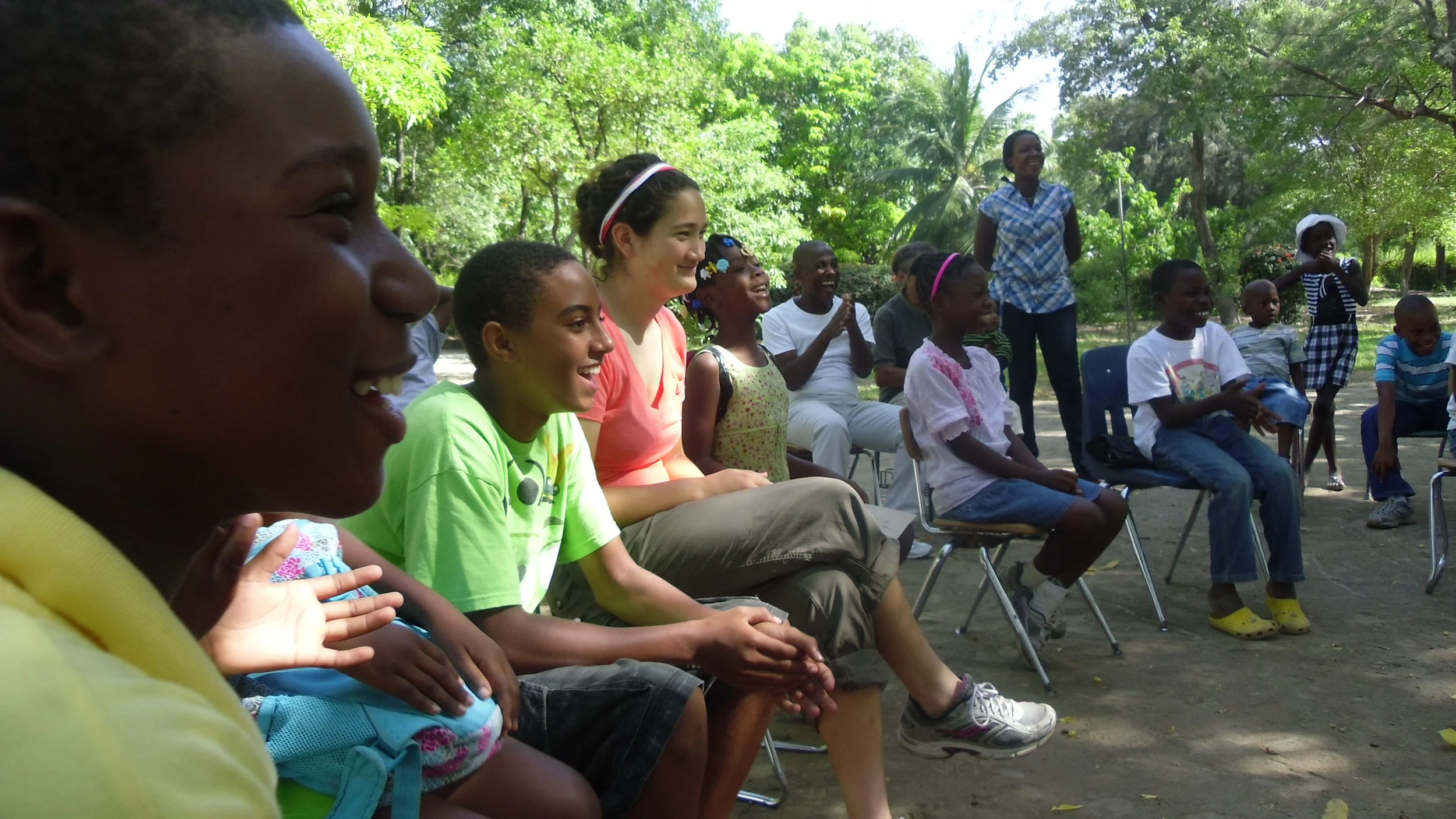Recently, while participating in cleaning up a local park, I felt a sense of longing for my children. From as early as I can remember, I would take them with me on every service opportunity I participated in. With both of them now older and often away from home, I miss having them along.
That longing was amplified when I saw a adults out serving with their children. I hope that more people would encourage young people to volunteer, not just to accumulate community service hours for school or a project, but because being of service is important and necessary.
There are different forms of service. There is paid service and voluntary service, both of which are valuable and needed. For the purpose of this essay I will focus on volunteering: an act of service that benefits another individual or the community and provided by an individual or group for no financial or social gain.
Being of service, giving your time and sometimes personal resources involves considering and anticipating the needs of others, as well as envisioning ways to fulfill that need—helping people for no other reason than actually caring and wanting to make a difference.
With regard to children, modeling the spirit of service is a good place to begin, and including them from a young age leads to a culture of service. In this way, when they are teenagers and then adults, giving back is a part of what they do regularly.
Why volunteer? Here are a few reasons I can think of.
“This is worship: to serve mankind and to minister to the needs of the people. Service is prayer.” ‘Abdu’l-Bahá
Zia teaching girls in Haiti how to make paper flowers.
Service to others builds character.
According to Mahatma Gandhi, “The best way to find yourself is to lose yourself in the service of others.”
I have found this to be true in my life. Spending time being of service has helped me hone in on my strengths and weakness. It takes courage, time, patience, compassion to serve, and it cultivates empathy.
It helps improve the conditions of the world.
“Unless someone like you cares a whole awful lot, nothing is going to get better. It’s not.” – Dr. Seuss
There are a great many reasons why people volunteer, but mostly it is to improve the conditions of other people or for the well-being of our community or the planet. Serving others helps make the world a better place for all of us and future generations.
It leads to human connection.
We connect through our common belief and values. Whatever the cause we are working towards--social justice, equality, climate concerns, healthcare, education, alleviating homelessness--we are connecting based on values because we are concerned about the health and well-being of our community.
When we serve in this way, we learn about who we are, our values, and what we stand for. We learn to work with others, and as a result, we learn about ourselves, our strengths, and our weaknesses.
Performing a job with the spirit of service and for no other reason but the greater good can elevate the most mundane of tasks into a rewarding experience.
Personally, I volunteer for selfish reasons. I gain so much more from the experience in proportion to what I give. It gives my life purpose and meaning. But also, I recognize how privileged I am, and service is my way of giving back, of giving thanks for all that I have been given, and it makes me happy.
It has beneficial effects on our physical, mental and spiritual well being.
“Life’s most persistent and urgent question is, ‘What are you doing for others?’ ” — Martin Luther King, Jr.
There is a growing body of research that finds that there are beneficial effects of volunteering on physical, mental health and well-being. Research also shows that volunteering helps counteract the effects of loneliness, stress, anger, anxiety, and depression, which in turn leads to a happier and more fulfilling life.
In serving, one develops spiritual qualities such as altruism, kindness, compassion, empathy, courage, patience, cooperation, love, and purpose, to name but a few.
There are also important life skills that one cultivates when serving, such as the ability to problem solve, think critically, and socialize with people who are different. Volunteering can also lead resilience, builds self-confidence.
Planting at the middle school greenhouse
It may lead to opportunities to further develop leadership skills.
I began to notice the social benefits of volunteering in my children’s lives when they began to apply to youth leadership programs and college. The track record of service has come in handy, as it has opened doors to wonderful opportunities.
My intention to cultivate a culture of service was more for spiritual reasons. My hope for my children is that they will live service-oriented lives something I learned from my own parents. Service to humanity was what my parents did in their spare time, so it isn’t surprising that I would follow in their footsteps and raise my children the same way.
However, I now notice in my own children’s lives that one of the by-products of spending their youth being of service is that those experiences have helped to shape them as individuals. Their volunteering experiences are part of their narrative and inform their discourse. This, in turn, has opened doors for them into organizations that have provided them with opportunities to further develop their leadership skills as well as the ability to derive existential meaning in striving to better society.
How does on cultivate a culture of service?
Cultivating a culture of service can begin at home.
Cultivating a family culture of service can begin with simple tasks around the house like helping with cleaning, shopping, laundry, yard work, etc. Young children are eager to help and love having their own special little cleaning tools. By engaging them in service at home at a young age, we can begin to create a culture of service. I chose not to reward my children for helping with housework. When they were old enough to complain about housework, I used the analogy that our family is like the human body where every part had a part to play to keep the body healthy. Helping out at home was seen as an opportunity to be of service. They were contributing to the well-being of the whole family. That doesn’t mean we always enjoyed it or never complained, but we did it nevertheless. Recently, I have been very pleased to return home and my teenagers have taken care of chores around the house without being asked.
Find opportunities to serve in the community.
“Service to others is the rent you pay for your room here on earth.” Muhammad Ali
There are many opportunities within our local communities to be of service, such as at soup kitchens, food pantries, neighborhood clean-up days, fairs and local gardens, at health care centers and local religious houses of worship. In my family, we used our Baha’i religious holidays as a reason to serve. As my children got older, I encouraged them to teach younger children and to volunteer at school.
When my children were younger, we participated together in community service events. Serving others was not only fulfilling, but often it was a fun way for our family to spend time together. Children who see their parents serve are more likely to serve. Even now that my own children are young adults, I still occasionally alert them to service opportunities that they might be interested in, and when they are able to take them on, they do so.
If it is financially feasible, travel to serve another community
Not everyone has the means to travel, and one does not have to travel far to volunteer with children: it can simply be to a neighboring town or state. But whenever possible, traveling with children with the specific goal of volunteering can be transformative.
When my children were 9 and 12 years old respectively, we traveled to Haiti for 11 days to volunteer at a summer school program. What a blessing! When I landed in Haiti with two young children, our luggage was missing, we couldn’t find our driver, and when we finally stepped outside, the clouds opened up and it violently poured down on us. For most of the trip, we slept in tents, and I remember my little girl counting 75 mosquito bites on her body. Though challenging in some ways, it was an extremely rewarding journey.
In the end, that trip to Haiti trip turned out to be an adventure. While we were there, my children helped to prepare lessons and teach them, set up the classrooms, lead games, and assist in every aspect of the trip. They came up with simple but brilliant ideas to work with the Haitian children, many of whom were their age or older.
We couldn’t speak their language, nor they ours, but we still managed to play, laugh, and have fun together. It was hot, dusty, exhausting, and yes, sometimes complaint- worthy, but how could we complain while watching Haitian children play and derive joy from their lives, even though they had so little compared to us? We learned so much from the Haitian people about life and about ourselves.
That trip made a huge impression on my children. Upon returning home, they both acknowledged how fortunate their lives were. They complained a little less about all the things they felt they didn’t have (at least for the first few months). Volunteering with children at a local homeless shelter or at a hospital with sick children can be just as transformative.
Being of service doesn’t have to be an event, involve spending money, or leaving your community. For many, traveling to serve is not an option. However, small acts of kindness towards others, wherever they are performed, add a richness to one’s life and the lives of others, and as a result, makes the world a better place.
When we involve our children in service and encourage them to pay attention to the needs of their community and think of solutions, we can begin to create a culture of service, the benefits of which are immeasurable.
How are ways in which you cultivate a culture of service with your family. Please share in the comments.
Thanks for taking the time to read this article. I hope it has been beneficial to you. Please show some love by clapping, liking and sharing this post.





